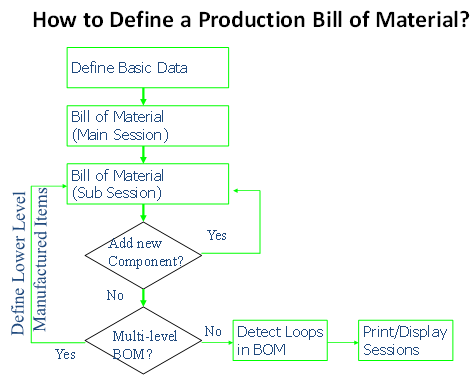Cost Estimate and Accounting in ERP
April 3, 2025
 Cost Estimate and Accounting in ERP
Cost Estimate and Accounting in ERP
The costing module is one of the important controlling modules which enables effective internal cost control and accounting. All functionalities regarding cost analysis and cost allocations are provided by this module. The cost accounting module is highly integrated with budget and general ledger modules as well as draws input and provides output to various logistics…
 Cash Management Module in ERP
Cash Management Module in ERP
Cash management module provides information relating to cash flow of the organization, by processing and analyzing all cash and bank transactions, arising out of payment of supplier’s invoices, receipt from sales invoices, stand alone payment and unallocated payment/receipts. Cash management module also allows analyzing financial transactions for a given period of time and provides information…
 Change and Risk Management in ERP Implementation
Change and Risk Management in ERP Implementation
An ERP system is a process and not an end in itself. Perfunctory Implementing of ERP system will not boost efficiency. Reasons for failure of an ERP project such as lack of commitment from management and employees, lack of communication, knowledgeable employees not available for the project, are mostly organizational issues and have nothing to…
Bill of Material (BOM) is a base functionality of setting up production module of an ERP system. A manufactured item consists of components, which are used to build the product through production operation(s). The main use of BOM is to define product structure of a manufactured end item.
Routing is another important base of production module, which defines the method of manufacturing. Method or route to be followed for manufacturing a product is a prerequisite for setting up production module.
Bill of Materials: Any manufacturing process goes through various phases of production and at each phase, components (either work in progress or purchased) are needed. BOM details components required at various phases or levels of operations (either single level or multi level). In a multi level BOM, a parent/child relationship between successive levels is formed.
BOM is used both for production and planning purpose, as specified below:
Loops in BOM - While defining multi-level production bills of material, the user may mistakenly link a higher level item to its component at a lower level. This creates a data error and triggers an infinite loop for the manufactured item. This mistake is detected through utilities, which normally forms part of the module.

Routing - The objectives of Routing module are:
Department - An organizational unit that carries out a specific set of tasks. A department can be of various types such as work centre, service centre, sales office etc.
Work Centre - A Work Center is a place where production activities are performed. Resources (like men and/or machines) are linked to a work centre. Thus, a Work center is a group of resource units used as a functional planning unit. . Work centers may be departmental work centre or sub contracting work center.
Task - This term is used to describe any activity carried out on the shop floor. Work centers and machines (for machine tasks) are used to define tasks. Task may be of various types such as production, repair etc.
Work centre Task relationship - The task is linked to the work center if the work center is able to executing the task. Details such as set up time, production rate etc. are maintained under this relationship.
Routing Code - The routing code identifies a routing sheet. Multiple (alternative) routings are possible for each standard manufactured item. A routing selection can depend on the order quantity, which is called the Order Quantity Dependent Routing. A routing code is needed to be linked to the manufactured item.
Routing Operation - Here, series of routing steps that are carried out successively to produce an item is defined. The operations are identified by serial number, which indicates sequence of operations for the associated manufacturing process.
The main flow between business objects in Routing module is depicted below

Your email address will not be published. Required fields are marked *